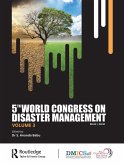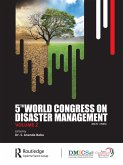The introduction establishes a foundational understanding of climate risk and its significance in today's world. It highlights the interconnectedness of climate impacts and underscores the roles of various stakeholders, including governments, businesses, and communities, in addressing these challenges.
The book delves into the science of climate change, detailing the key drivers and impacts while emphasizing the importance of accurate data sources and climate modeling. It further discusses metrics for assessing climate risk and the inherent uncertainties in climate projections.
Frameworks for climate risk management are presented, focusing on core principles, risk identification, adaptive management, and strategies for resilience and mitigation. The book then introduces quantitative methods for climate risk modeling, exploring statistical approaches, machine learning, scenario analysis, and spatial-temporal modeling.
Sector-specific challenges are examined in detail, covering climate risks in agriculture, infrastructure, finance, and energy. The book also addresses the regulatory landscape, discussing international agreements, national policies, and emerging disclosure standards that shape climate risk management practices.
Effective risk communication and stakeholder engagement are emphasized, highlighting the importance of public awareness, education, and collaborative efforts in fostering community resilience. Technological innovations, including AI, remote sensing, and blockchain, are explored as pivotal tools for enhancing climate risk management.
Through compelling case studies, the book illustrates successful climate risk management practices across various sectors. It concludes with future directions, emphasizing the need for ongoing adaptation, innovation, and global cooperation to build a resilient and sustainable future in the face of climate change.
Overall, this book serves as an essential resource for policymakers, practitioners, and researchers seeking to navigate the complexities of climate risk management and implement effective strategies for a sustainable future
Dieser Download kann aus rechtlichen Gründen nur mit Rechnungsadresse in A, B, CY, CZ, D, DK, EW, E, FIN, F, GR, H, IRL, I, LT, L, LR, M, NL, PL, P, R, S, SLO, SK ausgeliefert werden.









